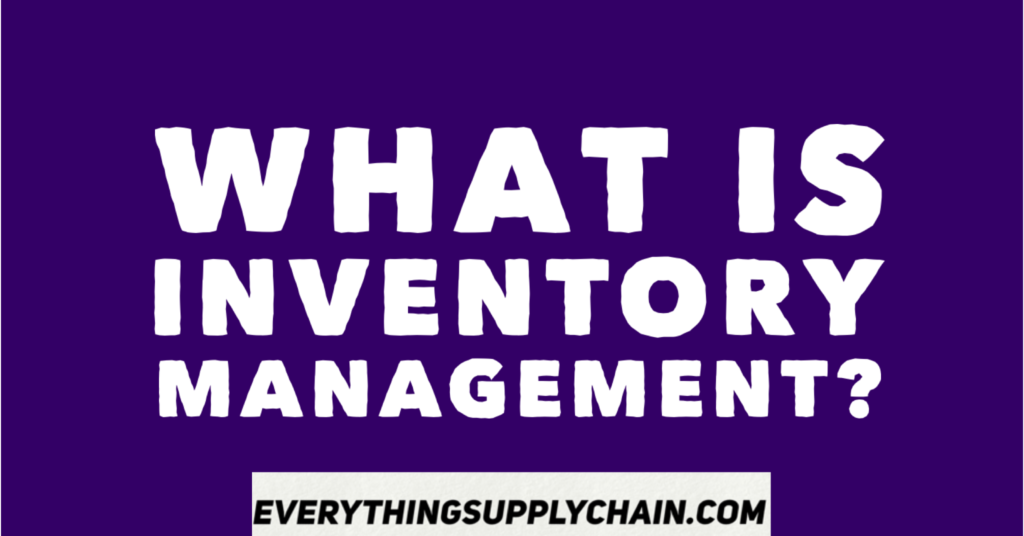1. Gain Relevant Education or Certification
- Formal Education: Many supply chain professionals start with a bachelor’s degree in supply chain management, business administration, industrial engineering, or logistics. These degrees provide foundational knowledge in logistics, procurement, inventory control, and operations management. If you already have a degree in a different field, consider adding courses or a minor in supply chain to enhance your qualifications.
- Certifications: Industry certifications can be a game-changer. Consider:
- Certified Supply Chain Professional (CSCP) from APICS (now part of ASCM): Ideal for those who want to show expertise in end-to-end supply chain management.
- Certified in Production and Inventory Management (CPIM): For professionals focusing on production planning and inventory control.
- Lean Six Sigma Certification: Especially valuable for roles in operations and process optimization.
- Certified Logistics Professional (CLP): Aimed at logistics professionals who want to demonstrate expertise in managing logistics processes.
Action: Start by researching the certifications that are most relevant to the type of supply chain role you want to pursue. Choose one that aligns with your career goals, and if possible, take a prep course before attempting the exam.
2. Leverage Internships and Entry-Level Positions
- Internships: Many supply chain positions (e.g., procurement intern, logistics coordinator intern, or operations assistant) offer valuable learning opportunities that can give you hands-on experience. Internships also provide insight into how companies manage their supply chains and allow you to network with professionals who could become future colleagues or mentors.
- Entry-Level Jobs: Look for positions such as inventory analyst, logistics assistant, supply chain coordinator, or warehouse supervisor. These roles offer an opportunity to learn how the different parts of a supply chain function, and often provide a clear path for career advancement.
- Example: A logistics assistant might handle scheduling deliveries, tracking inventory, and liaising with vendors. Over time, this can evolve into a position as a logistics manager or even a supply chain strategist.
Action: Use platforms like LinkedIn, Indeed, or Glassdoor to search for internships and entry-level positions. Consider reaching out to companies directly to inquire about internship programs or entry-level opportunities, especially if you’re targeting specific organizations.
3. Network with Professionals in the Field
- Industry Events: Participate in supply chain conferences like the CSCMP EDGE Conference or ISM Annual Conference. These events feature sessions from industry leaders, workshops, and networking events where you can meet hiring managers and other professionals.
- LinkedIn Networking: Optimize your LinkedIn profile to reflect your interest in supply chain roles. Join LinkedIn groups focused on supply chain topics and engage in discussions to learn from industry experts. Reach out for informational interviews with professionals in roles you aspire to, asking for career advice and learning more about their career paths.
- Local Meetups: Attend local industry meetups or supply chain-related events in your area. Many cities have local chapters of national organizations like APICS, CSCMP, or ISM that hold networking events.
Action: Set a goal to connect with at least 5 new supply chain professionals each month through LinkedIn or at events. Build relationships and stay engaged by commenting on posts or sharing articles that interest you. Here is a collection of Supply Chain Collaboration Resources on Social Media.
4. Stay Informed About Industry Trends
- The supply chain field is dynamic, with trends like automation, artificial intelligence, sustainability, and blockchain significantly changing how supply chains operate. Staying informed about these trends can make you a valuable asset to employers who are adapting to these changes.
- Industry Publications: Subscribe to industry publications and blogs such as Supply Chain Management Review, Logistics Management, and Harvard Business Review to keep up with emerging trends.
- Podcasts & Webinars: Many thought leaders in the supply chain industry host podcasts and webinars. Listening to shows can help you gain insights on current challenges and best practices.
Action: Dedicate time each week to read articles, listen to podcasts, or attend webinars on new supply chain technologies or trends to stay ahead of the curve.
5. Build Analytical and Technical Skills
- Data Analysis: Today’s supply chains are increasingly driven by data. Whether it’s demand forecasting, inventory optimization, or route planning, being comfortable with analyzing data is crucial. Tools like Excel (advanced functions), Power BI, or Tableau can be used for data visualization and reporting.
- Enterprise Resource Planning (ERP) Systems: Many supply chain roles require experience with ERP software such as SAP, Oracle, or Microsoft Dynamics. Learning how to navigate these platforms will make you more marketable.
- Demand Planning Software: Familiarity with demand planning software, such as Kinaxis RapidResponse or RELEX, can set you apart in roles related to forecasting and inventory management.
Action: Consider taking online courses on platforms like Coursera, Udemy, or LinkedIn Learning to improve your proficiency with data analysis tools or ERP systems. Many of these platforms offer free or affordable options.
6. Seek Opportunities for Cross-Departmental Experience
- Working in different departments can help you understand how the various components of the supply chain fit together. For example, a procurement assistant can move into a logistics role or inventory control role.
- Rotational Programs: Many larger companies (such as Unilever or Nestlé) offer rotational programs where employees can rotate through various supply chain functions to gain broad knowledge and identify their areas of interest.
Action: If your current employer offers cross-departmental training or rotational programs, express your interest in gaining exposure to different aspects of the supply chain. This will increase your versatility and employability.
7. Consider Entry into Related Fields
- If you’re unable to secure a direct supply chain role, consider jobs in related areas like procurement, warehouse management, transportation, or logistics planning. These positions share many similarities and can help you build foundational skills applicable to supply chain management.
- For example, if you start in logistics (e.g., route planning or distribution management), you can later pivot to a more strategic supply chain role, such as supply chain analyst or demand planner.
Action: Look for entry-level positions in these related fields, as they will give you exposure to key supply chain functions and prepare you for more specialized roles.
8. Tailor Your Resume and Cover Letter
- Make sure your resume emphasizes skills directly relevant to supply chain management, such as forecasting, inventory management, logistics coordination, and data analysis. Use action verbs and specific achievements, like improving on-time delivery or optimizing inventory levels.
- Cover Letter: Customize your cover letter for each position by addressing the specific requirements of the role and demonstrating how your background aligns with the company’s needs.
- Example: If you’re applying for a role that requires logistics experience, mention any specific experience you have with transportation management systems (TMS) or how you optimized delivery routes in a previous job.
Action: Use resume optimization tools or professional resume services to ensure your resume stands out and is tailored for ATS (Applicant Tracking Systems).
9. Pursue Graduate Programs or Advanced Studies
- If you already have a bachelor’s degree, consider pursuing an advanced degree like a Master of Science in Supply Chain Management (MS SCM) or an MBA with a supply chain concentration. Many universities offer specialized programs that focus on the strategic and operational aspects of supply chains.
- Graduate programs not only offer in-depth knowledge but also provide networking opportunities with industry professionals, professors, and fellow students.
Action: Research graduate programs that focus on supply chain or logistics and consider applying if you want to take your career to a more senior level or specialize in a particular area.
10. Highlight Transferable Skills
- Even if your previous roles were in a different industry or field, skills like project management, problem-solving, negotiation, communication, and data management are highly transferable to supply chain roles.
- If you’ve worked in fields like operations, finance, sales, or engineering, highlight how these experiences have prepared you for roles like supply chain analyst or procurement manager.
Action: When writing your resume or preparing for interviews, make sure to draw connections between your past roles and how they have prepared you for a career in supply chain.









